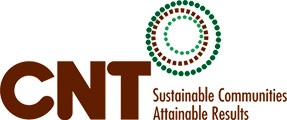Integrated Resource Planning
The water industry as a whole is a rising cost sector. As communities continue to grapple with perennial budget shortfalls, mounting water infrastructure needs, and overwhelming stormwater pollution problems, we need to ensure we are making the best water infrastructure investment decisions (economically, socially, and environmentally) and using scarce funds most efficiently.
Integrated resource planning (IRP) can assist in improving the efficiency of water utilities, thus conserving water resources, reducing costs, and bolstering community prosperity and vitality. Now more than ever, water planning must work to incorporate sustainable practices which recognize the interconnected nature of water supply, wastewater, and stormwater management. IRP is a planning methodology which works to recognize these relationships from a least-cost, publicly transparent, and scenario-based planning perspective.
Taking a cue from the energy utility sector, IRP is a more holistic and coordinated process for long-term decision making about water services. It breaks down the silos among water agencies, brings in key stakeholders whose impact on water may not be readily apparent (the fire department or department of transportation, for instance), and it engages the public. The ultimate goal is a stable vision and implementation plan for water services that remains relevant for decades.
Learn More
“The Role of Integrated Resource Planning in Improving Water Resource Management within the Great Lakes Region”
This working paper about the benefits of Integrated Resource Planning (IRP) is a part of CNT’s Great Lakes Sustainable Water Planning project.
Download » (407.9kb) – White Paper
This recommendations report is the product of a year-long IRP pilot project CNT and its partners worked on with the Village of Lake Zurich, IL.
Download » (2,546.1kb) – Report
This 10-Step Guide can help your community as it moves towards more sustainable water planning.
Program Contact
Danielle Gallet, Infrastructure Strategist








